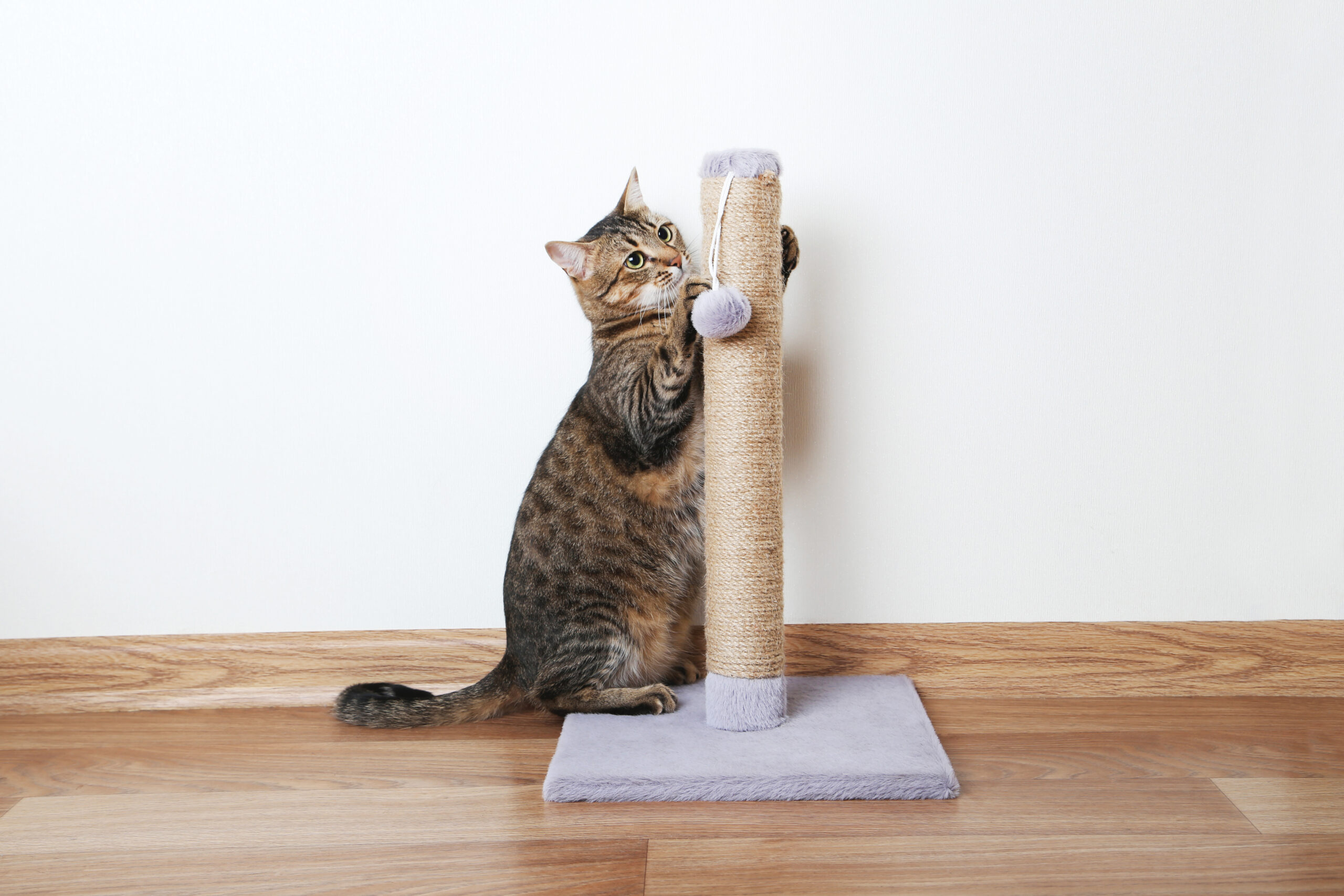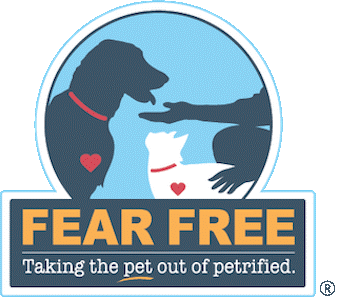Anxiety in Dogs and Cats

Many of us are familiar with anxiety, either directly or through someone we know, but did you know that it can also affect our dogs and cats? It is not always easy to recognise when a pet is suffering from anxiety, as signs can be subtle and intermittent, but being aware of the common symptoms of anxiety can help owners identify this condition, so veterinary treatment can be accessed early.
What causes anxiety?
Pets can become anxious when faced with a situation they find stressful or unpleasant. Sometimes, they may anticipate this event occurring and show signs of increased reactivity, fear, or even aggression as a result.
Many situations occur in daily life that pets may find stressful, including:
- Separation anxiety – This more commonly affects dogs when they are left alone and can be difficult to identify because the signs may only be shown when you are not at home.
- A change to the environment – Cats may find any changes to their environment stressful, including sending your pet to a cattery, having people working in your home, having visitors to stay, or a usual member of the household being absent.
- Travelling – Both dogs and cats can find travelling stressful, especially if they anticipate it to be a negative Cats may show their dislike of travelling by being difficult to get into their carrier, or they may even hide just at the sight of their carrier.
- Loud noises – This is most commonly a problem around fireworks night and New Year. Owners can help keep their pet safe and as calm as possible by taking precautions such as keeping cats indoors, being careful when exercising dogs, and creating a safe place for them.
- Other pets – Cats living in a multi-cat household may not get on with each other. Anxiety may develop if the cats are forced to interact together g. if they all are fed in the same place. Outdoor cats can also develop anxiety towards other cats living in the neighbourhood and this may make them reluctant to go outside.
Not all pets will find these events stressful, but if you feel that your pet is suffering from anxiety and struggling to deal with one of these situations, speak to one of our vets for help and advice.
Signs of anxiety in pets
For many pets, the signs of anxiety may be subtle and hard to recognise, which can make it easy for owners to miss the early signs. However, if you feel your pet’s behaviour has changed recently, this could be an early indication of a problem, so it can be useful to speak to one of our vets for reassurance.
Common signs of anxiety in dogs
- Pacing
- Salivating excessively
- Yawning
- Licking lips
- Panting
- Holding ears back
- Becoming excessively excited when you return home after your pet has been on their own
- Loss of house training – Urinating or defecating in inappropriate places
- Destroying furniture
- Barking/vocalisation
Common signs of anxiety in cats
- Excessive grooming leading to hair loss
- Skin problems
- Urinating in inappropriate locations
- Recurrent episodes of cystitis (bladder infection)
- Hiding for long periods of time
- Increased vocalisation
- Aggressive behaviours
- Change in appetite
- Not wanting to play
- Jumpy behaviour or overreacting
- Not wanting to go outside and spending more time indoors (or vice versa)
Not every pet will show every sign of anxiety, so if you notice any unusual symptoms, you should bring your pet in for a health check with one of our vets. Some symptoms of anxiety can also indicate that your pet may be unwell, so our vets will usually rule out any health conditions first.
How to help your pet cope with anxiety
There are several simple lifestyle changes that you can make at home to help reduce your pet’s anxiety levels. These changes can be beneficial for all pets and can also be used to help prevent problems from developing in the future.
- Provide your pet with a safe space – For dogs this may be a covered area behind the back of a sofa, or a covered crate with the door left open. They should always have access to this space so they can use it whenever they need Cats will prefer to have the option to be higher up in a room where they feel safer. You could provide your cat with shelving, allowing them the option to stay out of reach if they feel stressed.
- Only leave your pet alone for short periods of time – Minimise the time your pet is alone by having a family member or friend check on your pet, or you could use the services of a pet sitter to reduce the time your pet is alone
- Provide increased resources for multi-cat households – Make sure there is one more water and food bowl, litter tray and hiding place than the number of The bowls and litter trays should be put in various locations throughout your house so cats can choose to avoid each other.
- Pheromones – Adaptil for dogs and Feliway for cats are pheromones you can use around your house to help reduce your pet’s stress They can even be used in advance of any changes e.g. having building work done. There is a range of pheromone products available, so speak to one of our vets for help choosing the most suitable product for your pet.
- Never punish your pet and remain calm – Punishing your pet for showing an undesirable behaviour g. urinating in the house, will not help your pet and can quickly cause the behaviour to worsen. Instead, remain calm around your pet and reward them when they show the behaviour you are looking for. If you are struggling with your pet’s behaviour, speak to one of our vets for help and advice.
Anxiety is a long-term condition, which may need to be managed throughout your pet’s life. This may include making lifestyle changes, alongside treatment from one of our vets. For pets with severe anxiety, our vets may advise referral to a Veterinary Behaviourist registered with the Association of Pet Behaviour Counsellors (APCB) to ensure your pet gets the specialist care they need.
It is common for pets to develop anxiety, though it can be challenging to recognise and require long- term treatment. Pets suffering from anxiety can find daily life difficult, but our team is here to help support you and your pet throughout their treatment. Our veterinary team is happy to answer any questions you may have if you are worried your pet is showing signs of anxiety.








